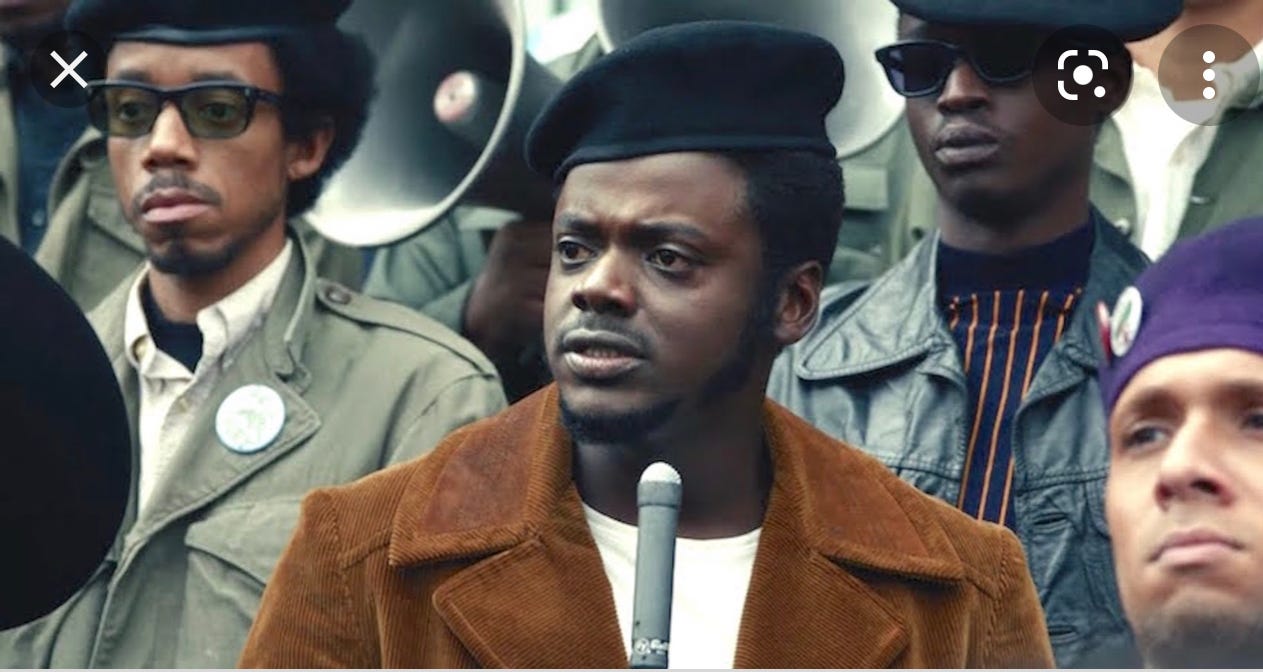Traveling at an altitude of 32,000 feet in the air is always an experience. Besides the choir of screaming babies surrounding you and a Jabba the Hut type
occupying the seat next to you, a flight affords you the opportunity to read, catch 40 or more winks, or depending on flight time, let you catch up on films you meant to see but for some reason or another (see also: Bike) you couldn’t.
Watching a movie like Shaka King’s “Judas and the Black Messiah” can also take you back in time—to an era in the late 1960s when the Black Panther Party (BPP) was perhaps at its zenith in this country. It posed a particularly formidable threat to FBI Director J. Edgar Hoover, whose mission was basically to wipe it off the face of the earth.
Many Americans felt the way Hoover did. The BPP preached violent revolution, not peaceful evolution, looked to Mao and Castro as inspirations, and pledged death to “the pigs” (the police). Its members addressed each other Soviet-style as comrades. On the other hand, the BPP were also fiercely dedicated to their local communities, often providing services such as free breakfasts for kids.
One of the best-known BPP members, Fred Hampton, who was head of the Illinois BPP, was high on Hoover’s shite list. The question remained: how could the FBI get close to him? That’s where Bill O’Neill came in.
A BPP member arrested in Memphis for both stealing a car and impersonating a police officer, O’Neill is offered a way out of a prison sentence for these crimes. Meeting with FBI agent Roy Mitchell (the excellent Jesse Plemons
from “Breaking Bad”), he agrees, albeit reluctantly, to act as an informant within the BPP and rat out Hampton’s and the party’s every move in Chicago. In addition to having the charges dropped, he is offered a considerable sum to be a stoolie.
The movie beautifully captures (perhaps a bit heavy-handedly) O’Neill’s guilt at the Faustian bargain he has struck. In fact, he forces himself to act even more militant, in order to offer the Panthers no doubt that he is firmly on their side.
Turns out O’Neill wasn’t the only FBI informant within the PPP—the film makes clear that others did the same thing for their 30 pieces of silver. And not just in Chicago either.
Casting, as you would expect in a film with such a great story to tell, is spot on. Daniel Kaluuya captures the fiery oratory of Fred Hampton, especially his devotion to “the struggle.” LaKeith Stanfield, who was so good in “Sorry to Bother You,” demonstrates he can do more than make people laugh. Dominique Fishback is equally good as Deborah, Fred’s pregnant girlfriend who believes in Fred even more than she believes in the cause. And in a true coup de grace of casting, Hoover is portrayed by—wait for it—Martin Sheen. Totally unrecognizable until the credits roll.
An unusual film about a time in America that was volatile, violent, and divided—perhaps just as divided as it is now. Given the significance of BLM and CRT, it’s pretty damn timely too.
On HBO Max.




I found it fascinating from the period at first, but it couldn't hold my interest. Seemed more like a character piece.